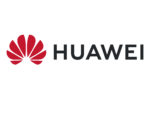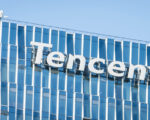One of China’s top server manufacturers, H3C, has reportedly warned of a looming shortage of Nvidia’s H20 AI chip—the most advanced processor currently available for sale in China under U.S. export rules. The notice, seen by Reuters, indicates rising concerns about disruptions in the international supply chain and signals possible obstacles for China’s AI development ambitions.
According to the document dated Tuesday, H3C informed clients that existing inventories of the H20 chip are “nearly depleted,” with new shipments only expected around mid-April. The notice blamed geopolitical tensions and raw material disruptions for the uncertainty. It also highlighted challenges in future supply planning beyond April 20 due to changes in shipping routes, production complications, and evolving policy environments.
Shortly after publication, Nvidia declined to comment, and H3C issued a clarification stating that “neither the company nor any of its departments have issued this notice or its related content.” However, industry sources confirmed that the chip is becoming increasingly difficult to obtain.
. AI Boom Driving Surging Demand
Demand for the H20 has sharply risen since January, driven by the popularity of Chinese startup DeepSeek’s cost-efficient AI models. Major Chinese tech giants such as Tencent, Alibaba, and ByteDance have ramped up orders in response, according to previous reporting by Reuters.
An anonymous distributor told Reuters that despite prior assurances about availability, many buyers were ultimately told the chips had already been sold at higher prices. “We were told the chips would be available, but when it came time to actually purchase them, we were informed they had already been sold at higher prices,” the source said.
. Geopolitical Pressures and U.S. Export Controls
The H20 chip was specifically designed by Nvidia to comply with tightened U.S. export restrictions implemented in October 2023. These rules ban the sale of the company’s most powerful chips—such as the A100 and H100—to China over national security concerns. The U.S. believes advanced AI chips could potentially be used to bolster China’s military capabilities.
Despite these restrictions, Nvidia is believed to have shipped around 1 million units of the H20 to China in 2024, generating over $12 billion in revenue.
Washington is also reportedly considering further limitations on even these lower-tier chips, raising the risk of additional constraints on China’s access to cutting-edge AI technologies.
. China’s Response and Domestic Alternatives
H3C is one of Nvidia’s key OEM partners in China, alongside Inspur, Lenovo, and xFusion—a spinoff from Huawei focused on x86 servers. The looming shortage could accelerate China’s efforts to develop and adopt domestic alternatives such as Huawei’s Ascend chips and Cambricon’s AI processors.
H3C’s internal communication reportedly emphasized a “profit-first” distribution model for upcoming chip deliveries, favoring long-term, high-margin customers. This signals that the chip shortage could hit smaller AI startups and new entrants the hardest, potentially reshaping China’s fast-evolving AI ecosystem.














